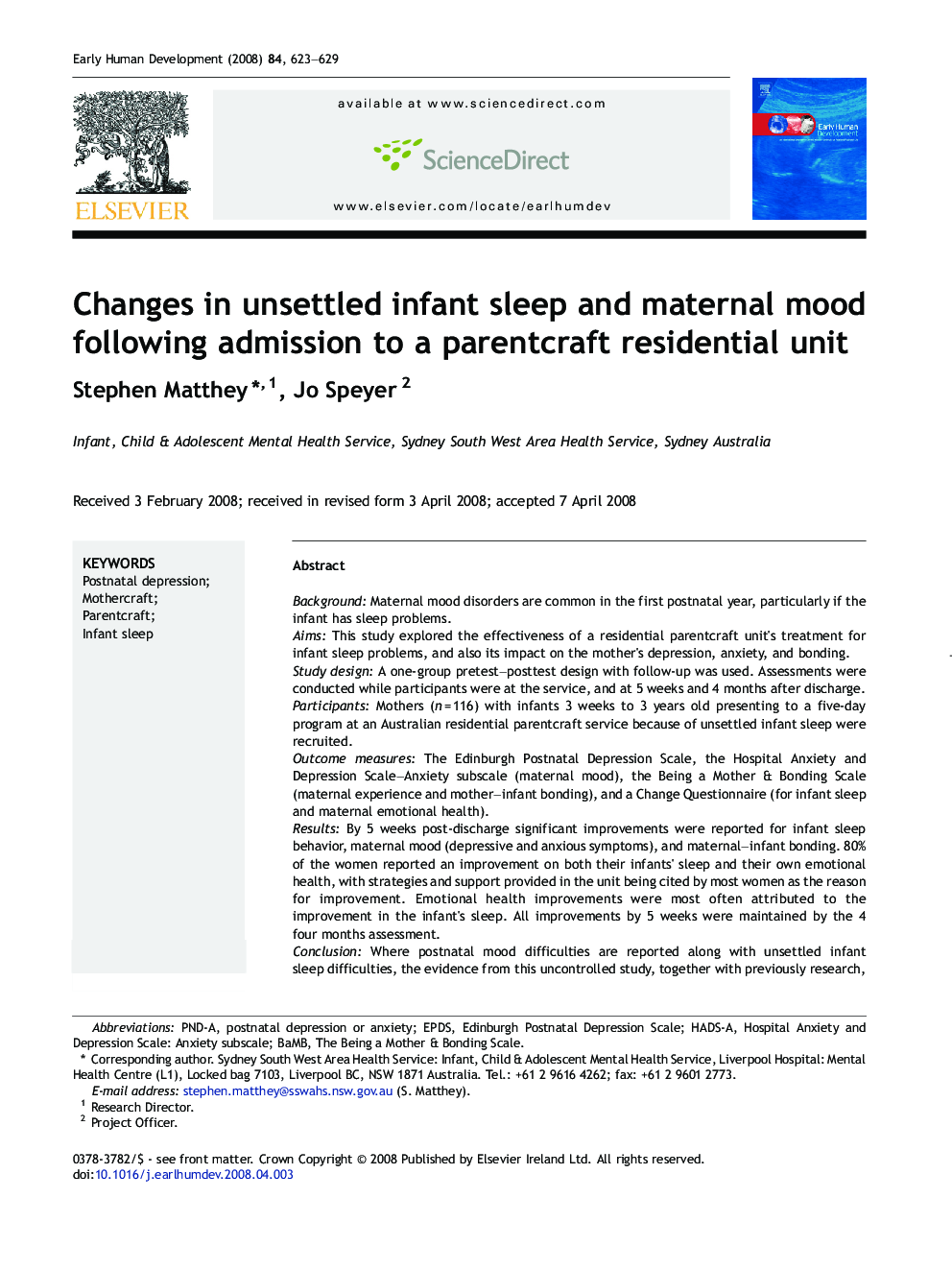| Article ID | Journal | Published Year | Pages | File Type |
|---|---|---|---|---|
| 3917071 | Early Human Development | 2008 | 7 Pages |
Background:Maternal mood disorders are common in the first postnatal year, particularly if the infant has sleep problems.Aims:This study explored the effectiveness of a residential parentcraft unit's treatment for infant sleep problems, and also its impact on the mother's depression, anxiety, and bonding.Study design:A one-group pretest–posttest design with follow-up was used. Assessments were conducted while participants were at the service, and at 5 weeks and 4 months after discharge.Participants:Mothers (n = 116) with infants 3 weeks to 3 years old presenting to a five-day program at an Australian residential parentcraft service because of unsettled infant sleep were recruited.Outcome measures:The Edinburgh Postnatal Depression Scale, the Hospital Anxiety and Depression Scale–Anxiety subscale (maternal mood), the Being a Mother & Bonding Scale (maternal experience and mother–infant bonding), and a Change Questionnaire (for infant sleep and maternal emotional health).Results:By 5 weeks post-discharge significant improvements were reported for infant sleep behavior, maternal mood (depressive and anxious symptoms), and maternal–infant bonding. 80% of the women reported an improvement on both their infants' sleep and their own emotional health, with strategies and support provided in the unit being cited by most women as the reason for improvement. Emotional health improvements were most often attributed to the improvement in the infant's sleep. All improvements by 5 weeks were maintained by the 4 four months assessment.Conclusion:Where postnatal mood difficulties are reported along with unsettled infant sleep difficulties, the evidence from this uncontrolled study, together with previously research, suggests that treatment which principally focuses on the baby-care issue can have a significant impact on many women's emotional health.
